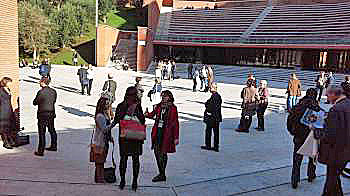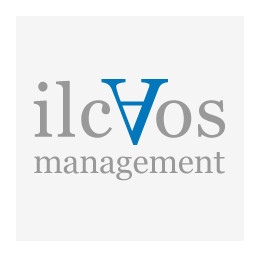“The SIS-RRI Conference takes place in one of the most suggestive Rome’s convention center: the Auditorium Parco della Musica”.

In this way the venue for the Conference was presented in the website. I think none of the participants was disappointed, on the contrary, Rome was generous enough to receive the Conference with a beautiful and sunny weather so it was really easy to appreciate the beauty of the Auditorium of Renzo Piano.
We can say it loud: It was a success!!!
And we are very proud and happy. Saying this, of course, doesn’t mean that everything was done, perfectly realized and achieved, but I think that on the whole we can look at it as a success.
We are talking about nearly 600 persons gathered in a chaotic and messy and beautiful city as Rome is, most of the people coming from the European scientific, research and innovation community and alike, having the opportunity to meet, discuss, point out to what are the most important subjects in this field but moreover with the ambitious of elaborate an effective instrument for the European Commission to be used to plan future RRI framework actions and objectives. As we could read from the press release document: “at the presence of a large public coming from the 28 Member States and from the 11 Associated Countries, the event will put the spotlight on a platform that allow societal actors to work together during the whole research and innovation process in order to better align both the process and its outcomes, with the values, needs and expectations of European society. This is what Responsible Research and Innovation (RRI) means.”
In fact a concluding document was delivered at the closing of the Conference: Rome Declaration And as Prof. Riccardo Pozzo presenting it to all, said, you can see the corrections and amendments as result of the work done by the different groups that participated to the Conference.
I can only add that probably there wasn’t enough time for the participants to have the opportunity to vote democratically the conclusions that every single session had reached, because I can remind you that the issues in question were quite complex:
-
prompting new governance strategies for science and scientific institutions;
-
fostering Research Integrity in Europe;
-
defining new tools for understanding society, forecasting changes and ameliorating the exchange between science and society.
And every issue was going to be discuss throughout the six following Key Areas:
- Public Engagement: of all societal actors – researchers, medias, policy-makers and civil society – and their joint participation in the research and innovation process, in accordance with the value of inclusiveness.
- Gender Equality: the second key is Gender Equality. Engagement means that all actors -women and men – are on board. The under representation of women must be addressed.
- Science Education: there is an urgent need to boost the interest of children and youth in science and technology, so they can become the researchers of tomorrow and contribute to a science-literate society.
- Open Access: our fourth key is to make Open Access a reality. This means giving free access to the results of publicly-funded research.
- Ethics: European society is based on shared values. In order to adequately respond to societal challenges, research and innovation must respect fundamental rights and the highest ethical standards.
- Governance: through this key, the aim is to develop shared and harmonious models of governance for Responsible Research and Innovation that integrate all the actors (researchers, policy-makers, industry and civil society).
Having this in mind, and also considering that everything can be improved and that we are talking about not only improving but also about evaluating, measuring, and considering the real needs of the society in a responsible way we can simply know there is still a long way to go.
It would have been impossible to talk to every speaker of every session, so what I am reporting now is only the impressions of some of the people that took part in the Conference under different roles; people I had the opportunity to speak to, some in the corridors when going from one session to another, others in the magnificent Italian buffet served at dinner/coffee break/lunch time, in other words, when it was possible.
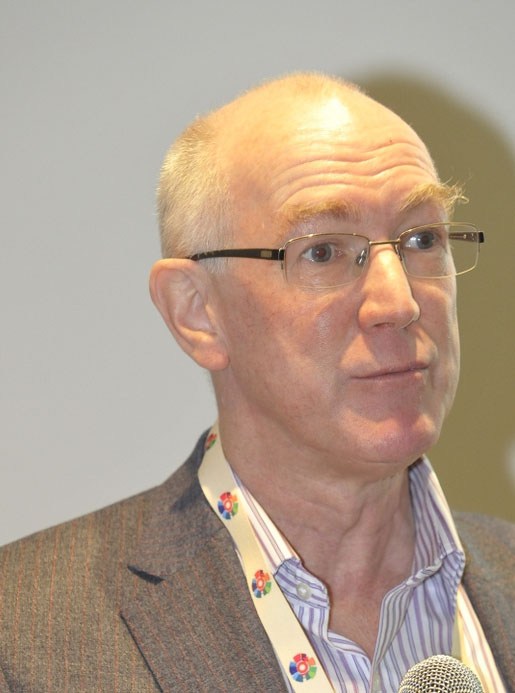 Professor Alan Winfield, BSc PhD Ceng MIET MIEEE MloD, from Bristol Robotics Laboratory, University of the West of England, Bristol, UK, Speaker in the session: Open Science
Professor Alan Winfield, BSc PhD Ceng MIET MIEEE MloD, from Bristol Robotics Laboratory, University of the West of England, Bristol, UK, Speaker in the session: Open Science
Winfield spoke about three levels of Open Science that we can summarise as a “very open science approach”. He underlined the importance of social media in supporting open science, and here he includes a website, blog, Facebook, LinkedIn, and so on; indeed anything that can be useful for a project. He also advocates the use of rich virtual environments for processes of social learning and innovation – deeply engaging all stakeholders in the scientific process.
At the same time he considers responsible research absolutely fundamental, and declared that “if science is not open it is immoral”.
This declaration was mentioned at the closing of the Conference by Prof. Carla Basili as a very clear statement of what all the participants had been talking about and how we should look at science in the future.
As for himself, Dr. Winfield told me he was delighted to have attended the Conference and considered it worthwhile and enriching.
 I must say that in the Open Science session there were many things that should be mentioned as the long and colourful Professor Roger Strand, from the University of Bergen, Norway, made us noticed as chairman of the session in co-chairman with Professor Carla Basili, from CNR Ceris Institute, currently responsible of the research line: Knowledge Circulation and Scientific Information Policies.
I must say that in the Open Science session there were many things that should be mentioned as the long and colourful Professor Roger Strand, from the University of Bergen, Norway, made us noticed as chairman of the session in co-chairman with Professor Carla Basili, from CNR Ceris Institute, currently responsible of the research line: Knowledge Circulation and Scientific Information Policies.  Opening the session, Carla Basili reported the preliminary results of the Stocktaking Study to be released as a follow-up of the conference by the Local Scientific Committee, explaining the move from Open Access to Open Science, particularly with a focus on the current economic context and on how it requires the scientific research to move beyond the academic boundaries to meet social and economic demands, the core of the RRI goal.
Opening the session, Carla Basili reported the preliminary results of the Stocktaking Study to be released as a follow-up of the conference by the Local Scientific Committee, explaining the move from Open Access to Open Science, particularly with a focus on the current economic context and on how it requires the scientific research to move beyond the academic boundaries to meet social and economic demands, the core of the RRI goal.
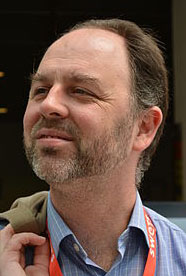 Cameron Neylon, Advocacy Director of PLOS, Cambridge, UK, said that is necessary to engage with people at frank, and he pointed out that “open is not about sharing, open is about listening” and affects communications, information and equity.
Cameron Neylon, Advocacy Director of PLOS, Cambridge, UK, said that is necessary to engage with people at frank, and he pointed out that “open is not about sharing, open is about listening” and affects communications, information and equity.
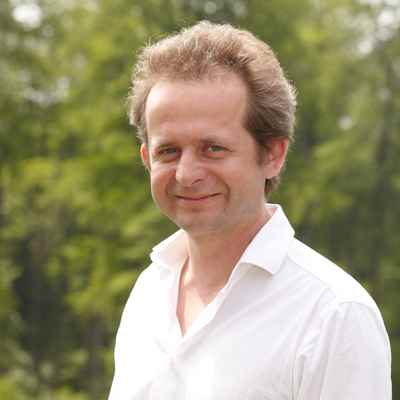 While Bernd Pulverer, from the EMBO Journal, Germany, said that the main reasons to publish are to preserve, share and mark achievements in academic environment, but now is “publish or perish”, taking also in account that are papers with more authors than readers.
While Bernd Pulverer, from the EMBO Journal, Germany, said that the main reasons to publish are to preserve, share and mark achievements in academic environment, but now is “publish or perish”, taking also in account that are papers with more authors than readers.
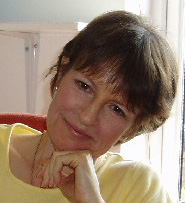 Instead, Alma Swan, SPARC Europe, UK, stressed an interesting point having the opportunity to discuss it also with somebody from the European Commission present in the audience. Her point was that about the projects that had been realized and finished we really haven’t got much information, because there are no monitoring procedures in place, and there is a real need of changing the culture in this area.
Instead, Alma Swan, SPARC Europe, UK, stressed an interesting point having the opportunity to discuss it also with somebody from the European Commission present in the audience. Her point was that about the projects that had been realized and finished we really haven’t got much information, because there are no monitoring procedures in place, and there is a real need of changing the culture in this area.
 Professor Guido Van Steendam, KULeuven, Antwerp Area, Belgium. “Responsible Research and Innovation (RRI) is the on-going process on aligning research and innovation to the values, needs and expectations of society”. This is how it was corrected in the Declaration of Rome after all the works. Professor Van Steendam, being present in this world since 1992, was afraid (I interviewed him the second day) that there was too much promotion and propaganda. He said that the real problem is how can we guide society to link it to technology. Society is always trying to define itself. Up to then, he thought it seemed to him a going back to the old idea, science in society.
Professor Guido Van Steendam, KULeuven, Antwerp Area, Belgium. “Responsible Research and Innovation (RRI) is the on-going process on aligning research and innovation to the values, needs and expectations of society”. This is how it was corrected in the Declaration of Rome after all the works. Professor Van Steendam, being present in this world since 1992, was afraid (I interviewed him the second day) that there was too much promotion and propaganda. He said that the real problem is how can we guide society to link it to technology. Society is always trying to define itself. Up to then, he thought it seemed to him a going back to the old idea, science in society.
 Mr. drs. Jan Staman, Directeur Rathenau Instituut, Utrecht, Netherland, enthusiastically told me that he was very happy to be in the Conference, because to attend this meeting with these atmosphere is very good, he felt that there was plenty of energy. Going on talking he said he felt, though, is time to stop talking because we know what we are, but is time to do something. He thinks there is the need of a solid next step for the future and here, he suggested, “we need another audience formed also by entrepreneurs, people from the real world”. He feels the urgency to go forward.
Mr. drs. Jan Staman, Directeur Rathenau Instituut, Utrecht, Netherland, enthusiastically told me that he was very happy to be in the Conference, because to attend this meeting with these atmosphere is very good, he felt that there was plenty of energy. Going on talking he said he felt, though, is time to stop talking because we know what we are, but is time to do something. He thinks there is the need of a solid next step for the future and here, he suggested, “we need another audience formed also by entrepreneurs, people from the real world”. He feels the urgency to go forward.
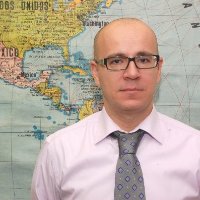 Dr.Javier Gómez Díez, Secretario del Foro Hispanoamericano Francisco de Vitoria y profesor del Departamento de Formación Humanística, Universidad Francisco de Vitoria, Madrid, Spain. For Prof. Gómez was his first time in one of these meetings and he said it was a very good opportunity to get in touch with people, even if at risk of becoming “a meet market”. Him being from a catholic and private university, I had to ask him how they look at the relationship between science and society. He said that at his university he assists people coming from all kind of religions and what they have very clear is something to be studied profoundly, the consciousness of people, moreover the consciousness of the ones that are different to us. Furthermore, as a university, they are quite advanced in biology with special care towards cancer and nourishment. Coming from Chile, I felt also obliged to ask him about the relationship with the South American countries that once were the Spanish colonies. He replied that it was really a long time ago, and looking at the present, he could speak about two or three EU Community. The most strong one composed by those countries that are economically better of like Germany, Great Britain, France, The Netherlands and with a second community where we could position Italy, Spain itself, Greece and so on. He said he hopes and believes in a very rich and plural Community.
Dr.Javier Gómez Díez, Secretario del Foro Hispanoamericano Francisco de Vitoria y profesor del Departamento de Formación Humanística, Universidad Francisco de Vitoria, Madrid, Spain. For Prof. Gómez was his first time in one of these meetings and he said it was a very good opportunity to get in touch with people, even if at risk of becoming “a meet market”. Him being from a catholic and private university, I had to ask him how they look at the relationship between science and society. He said that at his university he assists people coming from all kind of religions and what they have very clear is something to be studied profoundly, the consciousness of people, moreover the consciousness of the ones that are different to us. Furthermore, as a university, they are quite advanced in biology with special care towards cancer and nourishment. Coming from Chile, I felt also obliged to ask him about the relationship with the South American countries that once were the Spanish colonies. He replied that it was really a long time ago, and looking at the present, he could speak about two or three EU Community. The most strong one composed by those countries that are economically better of like Germany, Great Britain, France, The Netherlands and with a second community where we could position Italy, Spain itself, Greece and so on. He said he hopes and believes in a very rich and plural Community.
 Dott. Luciano Massetti, Researcher at CNR-IBIMET, Florence Italy. He participated to the Market Place on Friday morning and was very satisfied. At first, he thought the situation was not so good because his expectations on the market were very high. But, I think, speaking to us, he realized himself that in reality it has gone very well because the contacts they made were of a very high quality, 50% from Italy and the other half from Belgium, Netherlands, UK, but all of them with a real interest they hope to develop.
Dott. Luciano Massetti, Researcher at CNR-IBIMET, Florence Italy. He participated to the Market Place on Friday morning and was very satisfied. At first, he thought the situation was not so good because his expectations on the market were very high. But, I think, speaking to us, he realized himself that in reality it has gone very well because the contacts they made were of a very high quality, 50% from Italy and the other half from Belgium, Netherlands, UK, but all of them with a real interest they hope to develop.
 Dr. Roberta Schaller-Steidl, Gender and Diversity Management, Vienna and
Dr. Roberta Schaller-Steidl, Gender and Diversity Management, Vienna and
 Dr. Fiorella Battaglia, wissenschaftliche Assistentin, Ludwig Maximilians Universität Münche, Monaco were both of them quite busy with their lunch until I interrupted and asked them what their impressions were. We begun talking generally about the Conference, and then we went on speaking about the “Gender Equality” area. Both of them agreed that after what seemed to be a lower profile starting point, as the time went by, they realized it was considered by many people and not only the women present at the Conference, a subject that can no longer be postponed or treated as a less important area, as was stressed quite well by Rossella Palomba (CNR-Italy) in a plenary session.
Dr. Fiorella Battaglia, wissenschaftliche Assistentin, Ludwig Maximilians Universität Münche, Monaco were both of them quite busy with their lunch until I interrupted and asked them what their impressions were. We begun talking generally about the Conference, and then we went on speaking about the “Gender Equality” area. Both of them agreed that after what seemed to be a lower profile starting point, as the time went by, they realized it was considered by many people and not only the women present at the Conference, a subject that can no longer be postponed or treated as a less important area, as was stressed quite well by Rossella Palomba (CNR-Italy) in a plenary session.
 Prof. Paolo Manzelli, President of EGOCREANET, c/o Incubator of the University in Florence, expressed his idea about Responsible Research. He has a very clear idea because he has been of this idea for quite a long time, in advantage to many people; he said that Responsible Research has to go forward, with collaboration leaving behind competitiveness. He thinks that in the future Research and Innovation must respond to the needs and the growing ambitions of the knowledge society, that overcome the reductionist mechanical paradigm and values the obsolete industrial society in order to be more responsible and conscious.
Prof. Paolo Manzelli, President of EGOCREANET, c/o Incubator of the University in Florence, expressed his idea about Responsible Research. He has a very clear idea because he has been of this idea for quite a long time, in advantage to many people; he said that Responsible Research has to go forward, with collaboration leaving behind competitiveness. He thinks that in the future Research and Innovation must respond to the needs and the growing ambitions of the knowledge society, that overcome the reductionist mechanical paradigm and values the obsolete industrial society in order to be more responsible and conscious.
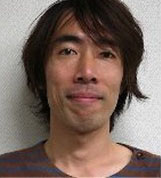 Go Yoshizawa, Ph.D., Associate Professor, Depart. Of Biomedical Ethics and Public Policy, Osaka University, Japan, and Hirakawa, Hideyuki, Ph.D., Professor Osaka University Center for the Study of Communication-Design (CSCD). Talking to them I noticed they were surprised to discover lots of similarities with research problems, concepts of society, and so on. But, they pointed out, a Conference like this one in their country would have been attended only by people from one technical speciality, even from one brunch of the scientific community which under my point of view, is a sign of hierarchical impoverishment. Just because I had to, I asked them what about Fukushima, how they live it now. They said that even if they live far away, they all know that because already 4 years have passed by they should seriously do something about it.
Go Yoshizawa, Ph.D., Associate Professor, Depart. Of Biomedical Ethics and Public Policy, Osaka University, Japan, and Hirakawa, Hideyuki, Ph.D., Professor Osaka University Center for the Study of Communication-Design (CSCD). Talking to them I noticed they were surprised to discover lots of similarities with research problems, concepts of society, and so on. But, they pointed out, a Conference like this one in their country would have been attended only by people from one technical speciality, even from one brunch of the scientific community which under my point of view, is a sign of hierarchical impoverishment. Just because I had to, I asked them what about Fukushima, how they live it now. They said that even if they live far away, they all know that because already 4 years have passed by they should seriously do something about it.
 Dr. Charly Ryan, Senior Lecturer in Education, Education, Health and Social Care, The University of Winchester, UK, speaker in the Formal and Non-Formal Science Education. A very affable and gentle person who said that he was really very happy to be there, that he had met lots of interesting people. He also told me he thinks the Commission has a big job to do towards the public. Most people, in his experience, don’t know that they are expected to be part of the Open Science. They have conducted a survey in England interviewing more than two thousand people for two hours for each of them and have found that a 5 % of them were not able to make any type of comment with reference to science and society. Something to reflect seriously.
Dr. Charly Ryan, Senior Lecturer in Education, Education, Health and Social Care, The University of Winchester, UK, speaker in the Formal and Non-Formal Science Education. A very affable and gentle person who said that he was really very happy to be there, that he had met lots of interesting people. He also told me he thinks the Commission has a big job to do towards the public. Most people, in his experience, don’t know that they are expected to be part of the Open Science. They have conducted a survey in England interviewing more than two thousand people for two hours for each of them and have found that a 5 % of them were not able to make any type of comment with reference to science and society. Something to reflect seriously.
 Ing. Giuseppe Monti, IMC Integral Management Consultancy GmbH, Director of Il Caos Management, declared that under his point of view he has attended a Conference with a very high level, extremely interesting topics that affect both globally and at European level and could do nothing but good for the development of science, technology, innovation, for a better society.
Ing. Giuseppe Monti, IMC Integral Management Consultancy GmbH, Director of Il Caos Management, declared that under his point of view he has attended a Conference with a very high level, extremely interesting topics that affect both globally and at European level and could do nothing but good for the development of science, technology, innovation, for a better society.
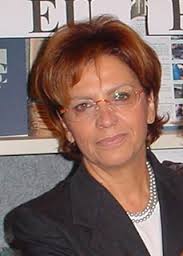 Dott.ssa Diassina Di Maggio, Director, Agenzia per la Promozione della Ricerca Europea APRE. I talked to the APRE’s Director during the closing of the Conference, in the beautiful major room of the Auditorium. At that point we were already aware of the huge quantity of work it has been done in these three days with people interchanging ideas, discussing about different positions ethically and scientifically about the main areas the Conference intended to explore. So she admitted that when they started this adventure there were problems of budget, and they thought it was a big challenge. Now she can said it has been a big success and we have all being testimonial of the great commitment of all the participants to understand what the society needs, a great need of communication between science and society.
Dott.ssa Diassina Di Maggio, Director, Agenzia per la Promozione della Ricerca Europea APRE. I talked to the APRE’s Director during the closing of the Conference, in the beautiful major room of the Auditorium. At that point we were already aware of the huge quantity of work it has been done in these three days with people interchanging ideas, discussing about different positions ethically and scientifically about the main areas the Conference intended to explore. So she admitted that when they started this adventure there were problems of budget, and they thought it was a big challenge. Now she can said it has been a big success and we have all being testimonial of the great commitment of all the participants to understand what the society needs, a great need of communication between science and society.
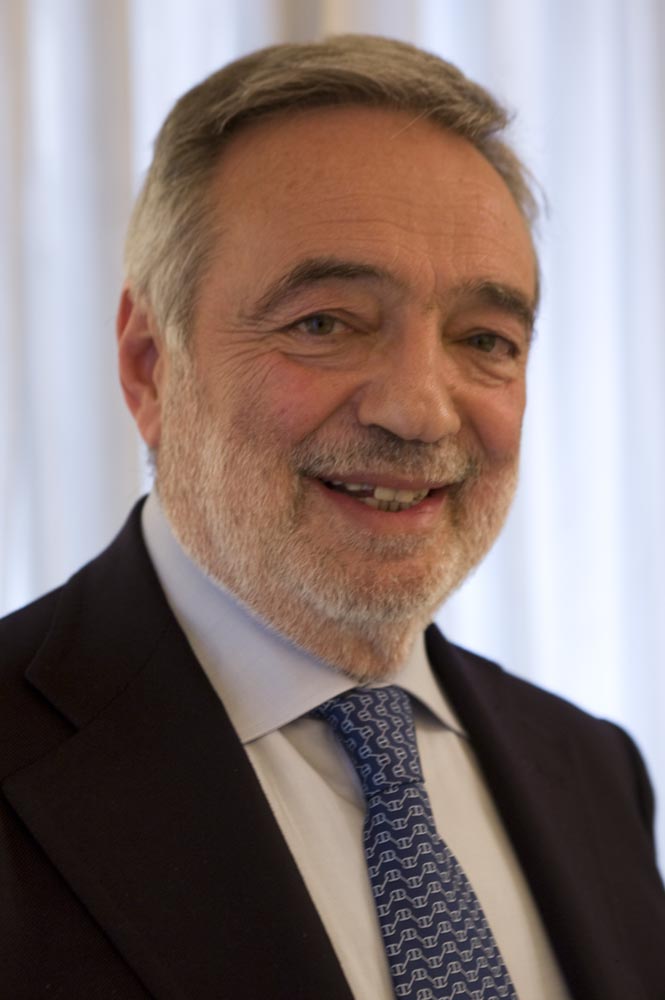 Prof. Luigi Nicolais, President of National Research Council (CNR), Italy. He was delighted to be able to attend after some difficulties on the first day, and is hard to make a summary:
Prof. Luigi Nicolais, President of National Research Council (CNR), Italy. He was delighted to be able to attend after some difficulties on the first day, and is hard to make a summary:
All research is scientifically valid, every single researcher, regardless of whether it is engaged in a mission- oriented or curiosity-driven, is a source of energy supplying new connections between ideas and provides knowledge that sooner or later someone, following unpredictable paths, will find a way to use it. In order to imagine and build a better future than the one we seem confined by the current conservative and warm views, it becomes urgent to mobilize extraordinary talent of culture, science, technology, research and innovation, which is associated with a conviction and widespread adoption of changes, important and profound in all sectors of society, particularly in the way we think, act, produce and consume. …it would be desirable, along with a new-found social role of scientists, to invest in a continuing and recurrent education, for young people and adults, countering the excesses in all areas of scientific illiteracy and carelessness, new forms of exclusion that can have a very serious impact in the present and future lives of every single person and of the community as a whole.
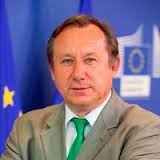 Mr. Wolfgang Burtscher – Deputy Director General DG Research and Innovation, Belgium. It was an honor to ask directly Mr. Burtscher his impressions of the Conference. And he said that who else could have been better to explain the RRI to society than the people that was present in Rome. In that regard he gave his sincere congratulations and thanks to the Italian Government and its Presidency because is important to look into Europe. Innovation doesn’t divide European countries, on the contrary is a challenge for Europe to address the innovation in the best way possible. He continued saying that of course, we cannot resolve all the problems of the world but research and innovation are crucial for the future and there is a real concern that society is changing too quickly and therefore research and innovation have to approach the matter together following the same policies.
Mr. Wolfgang Burtscher – Deputy Director General DG Research and Innovation, Belgium. It was an honor to ask directly Mr. Burtscher his impressions of the Conference. And he said that who else could have been better to explain the RRI to society than the people that was present in Rome. In that regard he gave his sincere congratulations and thanks to the Italian Government and its Presidency because is important to look into Europe. Innovation doesn’t divide European countries, on the contrary is a challenge for Europe to address the innovation in the best way possible. He continued saying that of course, we cannot resolve all the problems of the world but research and innovation are crucial for the future and there is a real concern that society is changing too quickly and therefore research and innovation have to approach the matter together following the same policies.
As said beforehand, there is a lot to be done, a long way to go yet, but we can say that the Conference in Rome was a great success and we hope to see the development and achievements in the future in order to develop the multi-actorial responsible approach based on the trans-disciplinary and interactive innovation to sharing transformation research to all over the world.

Prof. Riccardo Pozzo, Dott.ssa Mara Gualandi (APRE) to whom I extend my special thanks, Franco Rustichelli.
